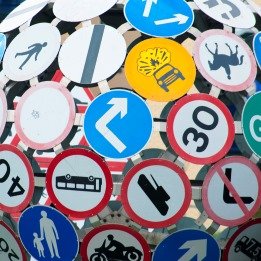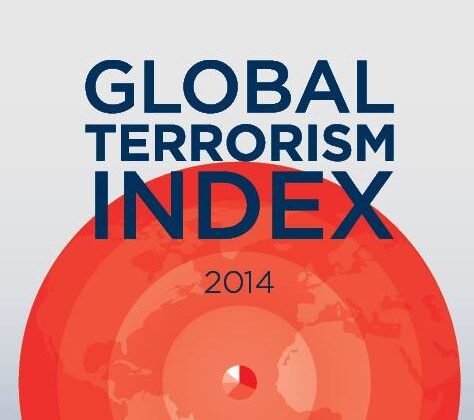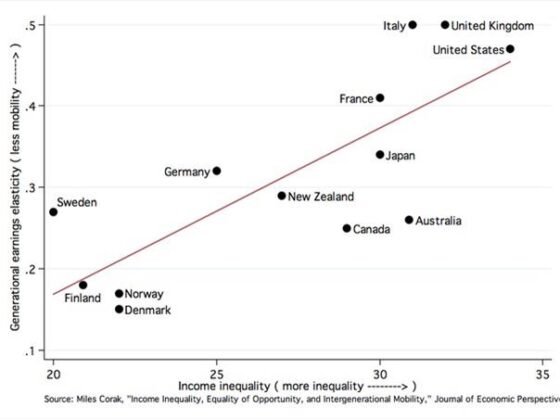(Guest post by Taras Kuzio) Scholars have been keenly probing the sources of the Donbas insurgency. Serhiy Kudelia’s memo on the topic provides an important part of the domestic story although it neglects some key questions about the relationship between organized crime, the Party of Regions, and Russia. Well-known expert on crime in the region, Mark Galeotti, recently wrote: “Crime, especially organized crime, has been at the heart of the events in Ukraine from the start.”
Russian nationalists, including Russian President Vladimir Putin, often do not see Ukraine as a foreign country and therefore the distinction between domestic and external causes that Kudelia discusses is rather irrelevant for them. In their eyes, Ukraine is artificial, its Russian speakers are ethnic Russians, and eastern and southern Ukraine should be called “New Russia” and be firmly within the “Russkiy Mir” (Russian World).
Viktor Yanukovych was never an independent actor prior to and during the Euromaidan. He was under pressure from Ukrainian society (from pro- and anti-European integration supporters), European leaders, the United States, and most importantly Russia. During Yanukovych’s four-year presidency he turned over Ukraine’s security forces to Russian control, which is one important reason why they remained “loyal” to the bitter end of the Euromaidan events, unlike their role during the Orange revolution.
Serhiy Leshchenko’s (2014) new study[1] of the Yanukovych presidency states that Yanukovych was recruited to be a KGB informer during his two terms in prison and that he provided intelligence on organised criminal groups in the Donetsk region. Former Polish President Radek Sikorski believes that Putin had compromising materials (“kompromat”) on Yanukovych. Hence, Sikorski and Leshchenko believe Yanukovych was scared of Putin.
Yanukovych met Putin in Valdai in October 2013 and in Sochi in January 2014, at critical moments. Both times the Russian president pressured Yanukovych, on the first occasion to drop Ukraine’s plan to sign the EU Association Agreement and on the second to repress the opposition with the January 16 “dictatorship laws.” As events escalated, Putin did not believe Yanukovych could endure without his assistance and he agreed to prop up his regime in return for Crimea becoming part of Russia. The Ukrainian president agreed to invite Russian forces into Ukraine while he was still in power but then he fled and called for Russian intervention from exile in Russia in early March. Yanukovych, in the words of Russia’s Ambassador to the UN, Vitaly Churkin, called for Russia “to establish legitimacy, peace, law and order, stability, and defending the people of Ukraine.” Clearly, it is impossible to separate domestic and external factors in these events. Deciding if Yanukovych was acting on his own or as an agent of Russia “can be maddeningly difficult, since the answer often lies somewhere in between” Galeotti writes.
This is true even for the longer term. Seven years before the 2014 Crimea and Donbas crises, in April 2008, Putin told the NATO-Russia Council at the Bucharest NATO summit that Ukraine was an “artificial state.” Putin’s comments followed an open letter signed by Ukraine’s president, prime minister, and parliamentary chairman asking NATO to invite Ukraine into a Membership Action Plan. That same year, the Party of Regions, the Communist Party of Ukraine, and Crimean Russian nationalists supported the independence of South Ossetia and Abkhazia—they were the only ones to do so in the entire region (even pro-Russia Belarus and Kazakhstan did not). The actions of the Party of Regions followed its consolidation of an alliance with Russian nationalists in Crimea three years earlier that had been brokered by Kremlin political technologist Konstantin Zatulin. The relatively poor performance of Russian armed forces in the 2008 conflict with Georgia led to investment in German technology for the training of Russian elite special forces who became known as “green men” during the invasion of the Crimea and Donbas because they lack country insignia on their uniforms.
After the Bucharest summit, from 2008-2009, Russia became aggressively opposed to EU enlargement—until then it had only been hostile to NATO membership for former Soviet states. The reason was the launch of negotiations between Ukraine and the EU in 2007-2008, and also Poland and Sweden unveiling the Eastern Partnership program for former Soviet states in 2009. In the summer of 2009, after the unveiling of the EU’s Eastern Partnership program, two Russian diplomats were expelled from Ukraine because of their support for separatism and radical pro-Russian groups in the Crimea and Odessa.
The diplomatic scandal, talk of a NATO Membership Action Plan, and the Russian invasion of Georgia in 2008, led President Dmitri Medvedev to write a hostile open letter to former Ukrainian President Viktor Yushchenko. The letter outrageously demanded changes in the policies of Ukraine, a sovereign, foreign state that included in the domestic arena: (1) halt to “nationalistic” history, (2) end to describing the holodomor as a “genocide” against Ukrainians; (3) and a return to heralding the “Great Patriotic War.” It also asked for changes to Ukraine’s foreign policies: (1) extension of the Black Sea Fleet base agreement in Sevastopol, (2) allowing a Russia-controlled consortium over gas pipelines, and (3) an end to Ukraine’s pursuit of NATO membership. All of these policy changes (except the gas consortium) Yanukovych fulfilled in his first year in office. Obviously, Yanukovych was more pro-Russian and neo-Soviet than Ukraine’s first three presidents.
Photographs also show that the Donbas separatists (including “titushki” vigilante sportsmen, Russian Cossacks, Party of Regions supporters, etc.) were training with weapons from 2009 most likely in the event the 2010 elections were another defeat for Yanukovych, as in 2004. (Kharkiv political scientist Yulia Bidenko collected data on a big spike in the registration of pro-Russian organizations in Ukraine from 2009.) Yanukovych was traumatized by his defeat in 2004 and always believed he won those elections fairly and that he was denied the presidency by a conspiracy by the West and Ukrainian leaders in Kyiv.[2] Putin thinks likewise and they both believe Euromaidan was a Western backed putsch. Yanukovych won the 2010 elections, but the “titushki” continued to train in preparation for 2015 when Yanukovych expected to receive a second term in office.
Clearly, one does not build luxurious palaces and increasingly lock away your political opponents if you do not expect to stay in power for the longer term. The Euromaidan events served to move “2015” forward by a year, and the armed “titushki,” with initially the assistance of Russian “green men” and later regular Russian troops, fomented the Donbas conflict. This ongoing conflict resulted in high Russian casualties (as clear a case as ever that Russian soldiers were fighting in a foreign state): “Cargo 200” transportations are regularly crossing into Russia according to the OSCE monitoring mission (the euphemism is from the Soviet occupation of Afghanistan) and the Russia’s Committee of Soldiers’ Mothers have documented between 1,500 and 4,300 Russian soldiers killed in Ukraine.
Then there is evidence of Russian “sleeper agents” in Ukraine, which is available from a variety of sources. For example, former GRU officer Igor Bezler moved to Horlivka in 2012 and was activated years later when he took control of the local police force. Kudelia is correct in pointing out that Bezler and other “sleepers” were able to quickly take control of local security forces in the Donetsk region, which did not happen in other regions of eastern and southern Ukraine, especially in the two swing regions of Kharkiv and Odessa. Support for Donbas and Crimean separatism has long been around thirty percent. In Ukraine’s six other Russian-speaking regions, support for separatism has been at less than ten percent and in some of those regions less than five percent.
Tatiana Zhurzhenko argues that the above factors laid the seeds for the Donbas conflict because the Party of Regions—unlike centrist parties under former President Leonid Kuchma—found common cause with groups ranging from “pro-Russian political parties (the Communists and Natalia Vitrenko’s populist Progressive Socialist Party) to Soviet veterans’ associations, Russian Cossacks and Orthodox brotherhoods—creat[ing] a heterogeneous yet active, even aggressive milieu. In 2014, this became the breeding ground for pro-Russian separatism.”
—-
Note: The author has a forthcoming work co-authored with Serhiy Kudelia: “Nothing personal: explaining the rise and decline of political machines in Ukraine,” Post-Soviet Affairs (2015)
[1] Serhiy Leschenko (2014), Mezhyhirskyy Syndrom. Diahnoz vladi Viktora Yanukovycha (Kyiv: Bright Star Publishing), pp. 57, 210-215, 218.
[2] T. Kuzio (2011), ‘Soviet conspiracy theories and political culture in Ukraine. Understanding Viktor Yanukovych and the Party of Regions,’ Communist and Post-Communist Studies, vol. 44, no. 3 (September), pp. 221-232.











